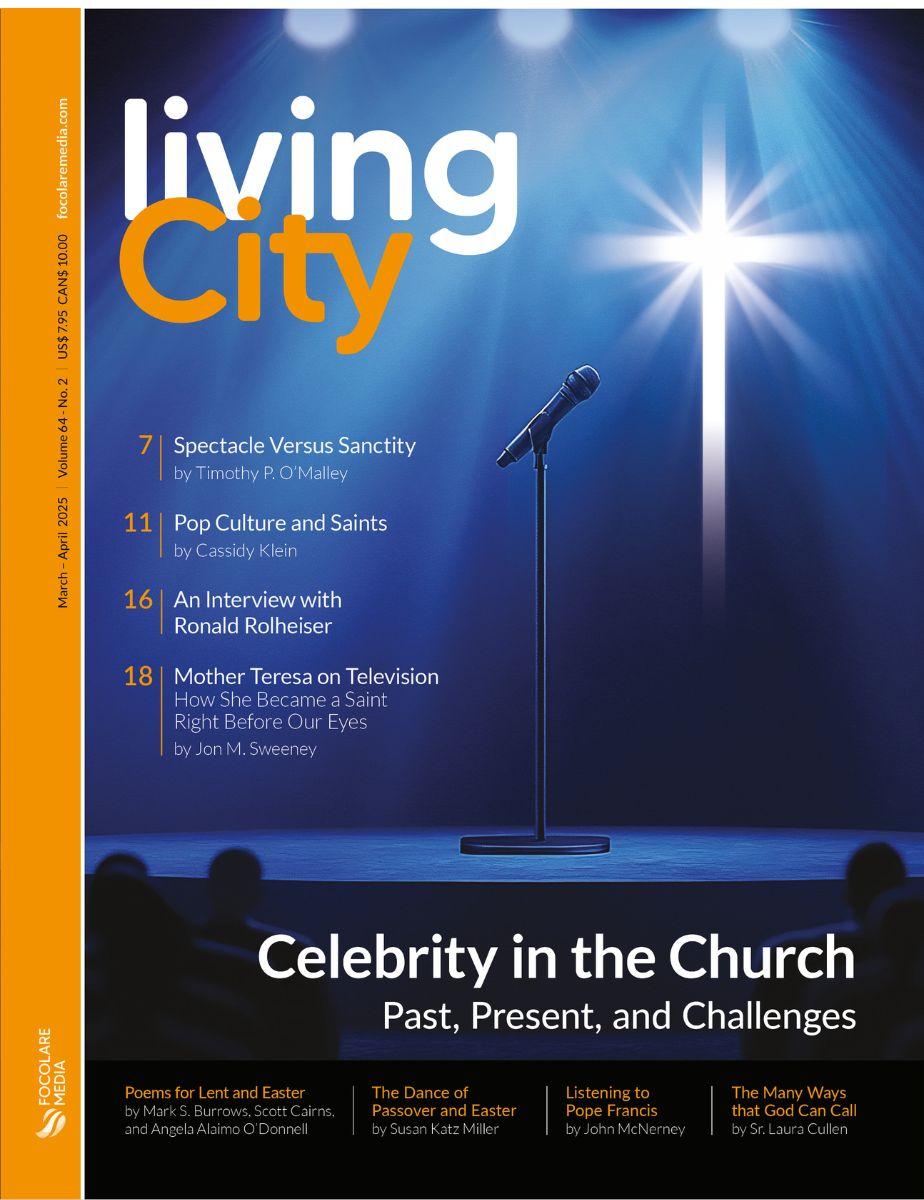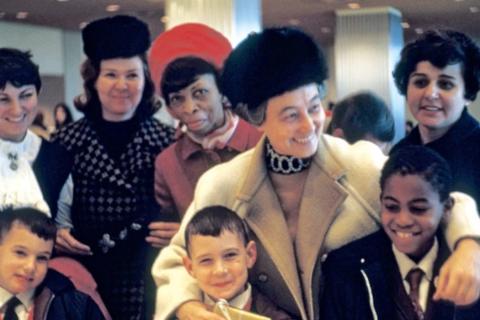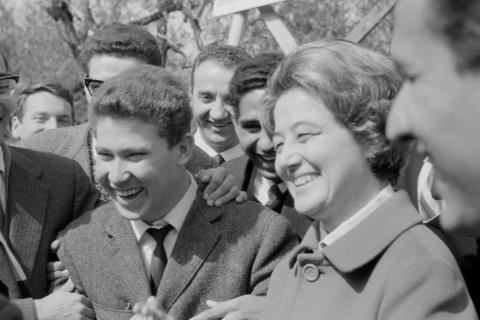
© Generated with Adobe Firefly
Jesus in our midst! That is what the Focolare is all about.
But it was on occasions when his presence in our midst diminished through some fault of our own that we understood best how much his presence meant.
At such times we did not feel at all tempted to go back to the world we had left. The experience of having Jesus in our midst had been far too powerful for us to be attracted by the petty vanities of the world, which his divine presence had put in proper perspective.
It was more like a shipwreck, where people grab for anything they can get their hands on to save themselves. We grasped about for any method the gospel might suggest to restore our fragmented unity.
However, simply making an act of the will on those occasions when we felt his presence among us had diminished, was not enough. Rather, just as two crossed logs feed the flames as they themselves are consumed, we saw that if we wanted to have Jesus constantly present among us, we had to live, moment by moment, all those virtues—such as patience, prudence, gentleness, poverty, purity, and so on—which are necessary to maintain supernatural unity with our brothers and sisters. We could not simply procure Jesus’ presence among us once and for all because Jesus is alive, his presence is dynamic.
“Where two or three…” We frequently had occasion to marvel at the practical implications of these mysterious and divine words.
“Where two or three…” Jesus does not specify who. He leaves it anonymous: “Where two or three,” whoever they may be. They could be two or three repentant sinners united in his name, two or three young women like we were, a little child and an adult—as long as there were two or three.
Putting these words into practice, we have seen barriers crumble on every side. One such barrier has been the narrow-minded, fault-finding, and even hateful attitude often existing between persons of different neighborhoods, towns, or regions. Jesus among us overcame these examples of foolish human weakness when, for example, someone from Trent and someone from Rovereto (a neighboring town) were united in his name.
Where there were two or more from different countries, the barrier of nationalism crumbled.
Where there were two or more from different racial backgrounds, racism crumbled.
Two or more—whoever they were, when they had always been considered incompatible for reasons of culture, class, age, or whatever. All could be, and indeed were meant to be, united in the name of Christ.
And where two or more good-living, churchgoing persons were united in his name, the spirit of rivalry that so often reigned among members of different church organizations or religious communities would disappear.
The practice of living according to these words gave our community and our gatherings something of the atmosphere of the early Christian communities, helping to show the world that the Church is everyone’s Mother and a shining example of unity. These words also pointed out the communitarian aspect of the Christian life, taking us beyond the individualistic approach that many Christians had, and which seemed outdated.
A spirituality based on these words was not one that required a great preparation or that was just for experts in the spiritual life. It seemed an ideal of life suitable for everyone. After all, Jesus had not said, “Where two or three saints are gathered in my name, there am I,” but, “Where two or three….”
Excerpt taken from Chiara Lubich. May They All Be One. New City Press, 2023.
If you enjoyed this article, you might like...














